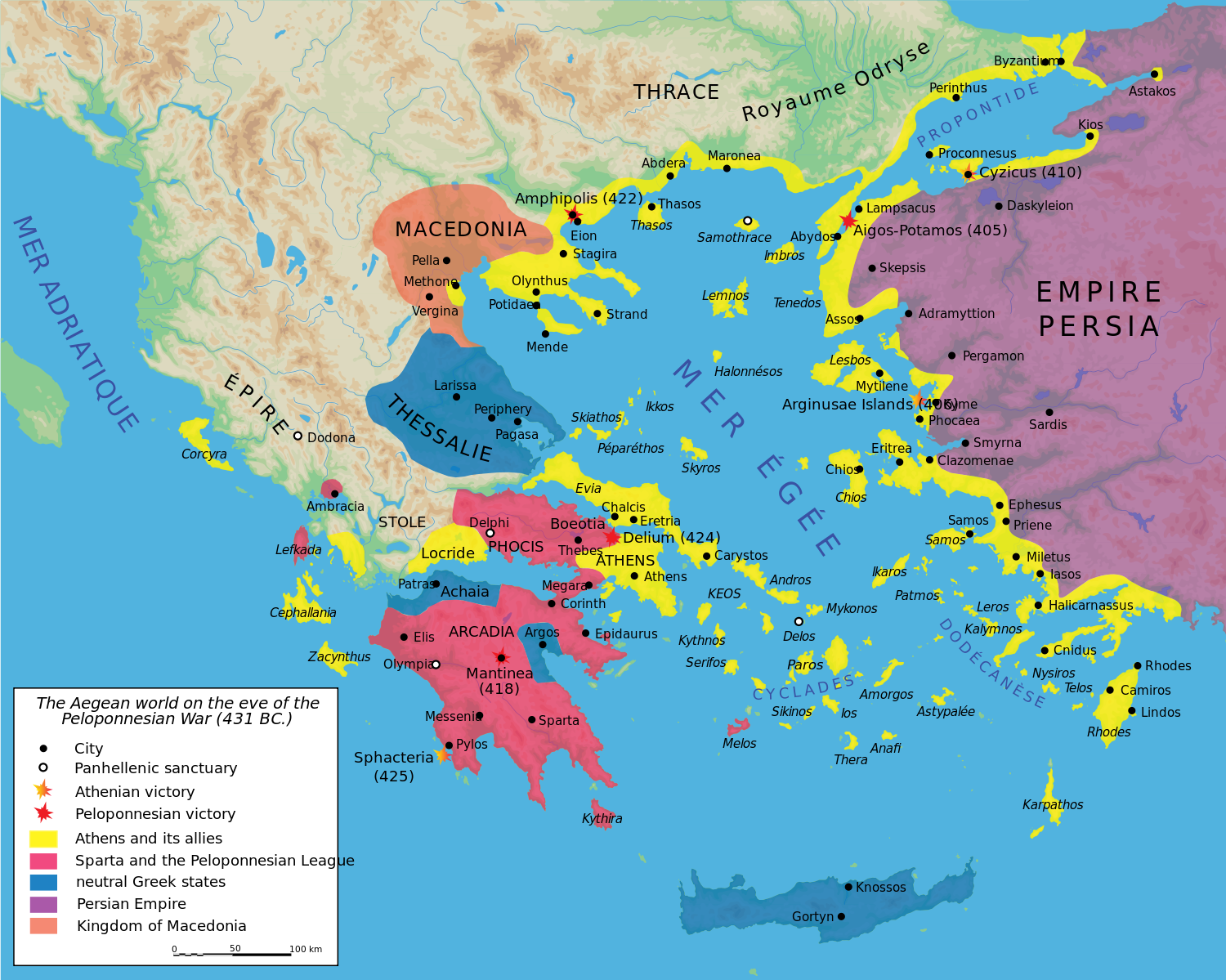What events led to the Peloponnesian War?
1 Answer
Corinth, a member of the Peloponnesian League, started a war with a neighbouring city-state. Sparta was an ally of Corinth and Athens became an ally of the other side. And thus it began...
Explanation:
The Peloponnesian War was a war fought from 431-404 BC between the Athenian Empire and the Peloponnesian League (named after the peninsula that Sparta and some of its allies occupied, Peloponnese), led by Sparta.
The lead up to the Peloponnesian War involves a few key players.

Let's first talk about Sparta. Having arguably the strongest army in the region at that time (Sparta maintained a professional army and soldiers were trained starting at age 7), it sought to maintain a peace and to keep the balance of power balanced between the three big cities of Ancient Greece: Sparta, Athens, and Corinth. However, with it's big professional army, Sparta also felt that it was the "final arbiter" of disputes and would try to be the region's superpower (more on that later).
Sparta headed up the Peloponnesian League - which was a combination of individual city-state alliances with Sparta and which was run with two assemblies that would vote on whether to go to war or not. Only Sparta could call the assembly together.
https://en.wikipedia.org/wiki/Peloponnesian_League
Moving on to Corinth. Corinth was the city that was trying hard to be taken seriously. It was part of the Peloponnesian League, was trying hard to gather colonies, and essentially trying to have influence and power. Because of this, it sometimes ran afoul of Athenian control.
Which brings us to Athens. The Ancient Greeks had fought a war with Persia and won - Sparta went back home and Athens continued the war. In doing so, it acquired a large number of city-states and also developed the biggest navy in the region.
As Athens acquired more and more city-states, it developed the Delian League, which was a series of alliances with Athens. City-states paid tribute to be a part of the alliance and membership wasn't always voluntary. As the Delian League continued to grow, and as city-states sought to escape it, Athens sought more control over its affairs and the League, essentially turning it into their Empire.
https://en.wikipedia.org/wiki/Delian_League
And that sets the stage for the events leading up to the War. The Spartans didn't trust the Athenians and their ever increasing empire. Corinth's conflicts with neighbouring city-states gave Athens the ability to write more alliance treaties deeper within Spartan territory. And it was a conflict between Corinth and Megara, with Athens aligning with Megara and Sparta aligned with Corinth that started the first part of the Peloponnesian War - 15 years of Sparta marching into Athenian territory to sack villages and burn crops, with Athens sending ships to the Peloponnese and doing the same along the coast to Sparta and her allies.
Then followed a series of wars and peace (each one more bloody than the last as rules of war, Greek society, and Greek religion were either ignored or over-ruled - entire populations of villagers were killed, for instance), a huge plague that wiped out at least half of the Athenian population (including its then nominal leader Pericles and his sons), and finally a large naval battle that Sparta won and that essentially ended Athenian power for many years.
The War weakened both Athens and Sparta and left them susceptible to other invaders. First it was Thebes who humbled the great armies of Sparta, and then Philip of Macedon (father of Alexander the Great) who conquered all of Greece (but for Sparta) and united it under that empire.

